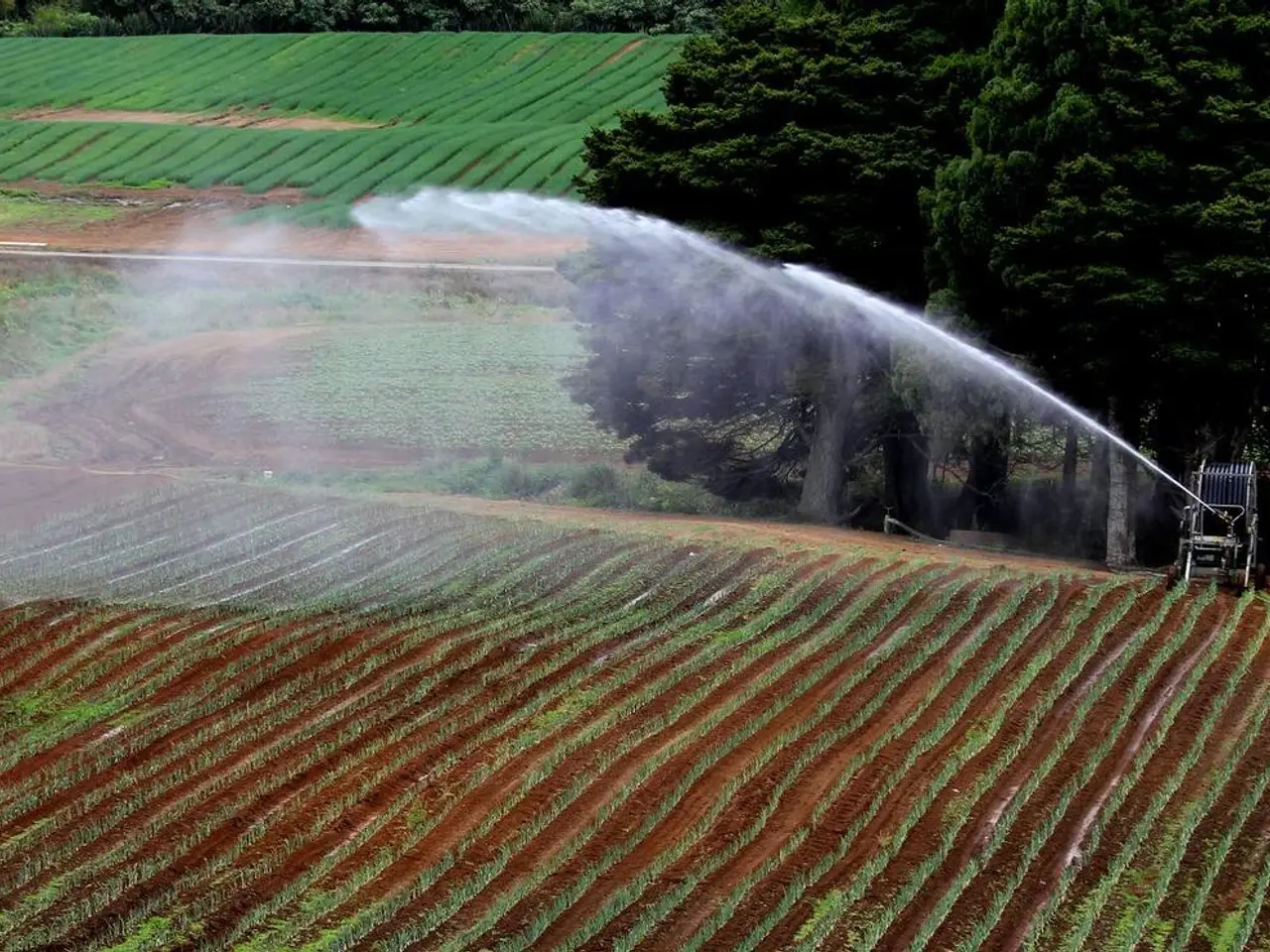Investigating Farming Financial Aspects: Unraveling How It Affects Worldwide Food Production
In the heart of our global economy lies a specialized sector that plays a crucial role in feeding the world: agricultural finance. This niche field provides the financial resources necessary for agricultural production, encompassing farming, agribusiness, and associated agronomic technologies.
The cornerstone of agricultural finance is agricultural credit and insurance. These financial services offer capital and risk management tools essential for the production, marketing, and sustainability of agricultural operations. By providing farmers and agribusinesses with access to land, equipment, inputs (seeds, fertilizers), and technology, agricultural finance enables them to make the significant, often capital-intensive investments required for success.
Agricultural credit serves as a vital mechanism, enabling land acquisition and expansion, offering working capital for purchasing essential inputs and machinery, and supporting rural economic development. It improves food supply chain efficiency, creates opportunities for marginalized groups, and encourages sustainable practices aligned with global development goals.
Agricultural insurance mitigates risks inherent in farming, such as crop failure, weather hazards, and market fluctuations. By enhancing financial stability, it empowers farmers to invest confidently in innovations and sustainable farming practices.
The importance of agricultural finance extends beyond mere financial support. It helps farmers manage the cyclical and unpredictable nature of agriculture, providing liquidity and tailored financial products. This differentiates between merely surviving and thriving seasons.
Strengthening rural economies is another key benefit of agricultural finance. The reinvestment of local deposits, particularly in community banking systems, fosters strong local ties and resilience against systemic shocks.
Promoting environmentally sustainable farming is another vital aspect of agricultural finance. It supports investments in eco-friendly technologies, climate-smart agriculture, and data-driven resource management tools, improving productivity while safeguarding natural resources for the future.
Agricultural finance also facilitates modernization and competitiveness in the agricultural sector. It finances equipment, technology upgrades, and infrastructure development that supports efficient production and market integration.
In summary, agricultural finance—including credit and insurance—is foundational to elevating the agricultural sector. It enables access to capital, manages risk, fosters innovation, supports rural livelihoods, and promotes sustainable food production systems. These financial services are intertwined with broader economic, social, and environmental goals crucial for long-term agricultural success and rural development.
Exploring agricultural finance enriches our understanding of the profound impact of finance on our everyday lives and the environment. It underscores the importance of interdisciplinary approaches to problem-solving and innovation. The intersection of technological advancements in artificial intelligence and machine learning with finance can bolster agricultural productivity and sustainability. Agricultural finance supports research and development in agronomy, leading to sustainable farming practices and innovation.
The types of agricultural loans may include short-term loans for immediate needs, long-term loans for large investments, and lines of credit for ongoing expenses. Agricultural credit is essential for farmers, as it helps them secure upfront capital that will only be recouped post-harvest. Insurance products in agricultural finance protect farmers against unpredictable elements like adverse weather conditions and pest infestations.
The journey of curiosity in agricultural finance underscores the importance of understanding the interconnectedness of sectors and disciplines. Agricultural finance supports risk management through insurance products and derivatives, protecting against weather and market uncertainties. As we delve deeper into this fascinating field, it becomes increasingly clear that agricultural finance is not just a tool for financial growth, but a catalyst for sustainable development and a healthier planet.
- In the realm of digital solutions, cloud services have a significant role to play in data-and-cloud-computing and agriculture, providing efficient storage and analysis for food-and-drink industries and lifestyle management.
- The fintech sector, including agricultural finance, is experiencing rapid growth due to technological advancements in artificial intelligence and machine learning, driving innovation and efficiency in the industry.
- A crucial aspect of personal-growth and career-development involves gaining knowledge about finance and its impact on global-cuisines, especially in the agricultural sector, where it plays a pivotal role in supporting farmers and agribusinesses.
- Education-and-self-development resources can help us understand the importance of agricultural finance in fostering sustainability and progress in the food-and-drink industry, as well as providing insights into the latest technology and trends in financial services.
- Integrating farming practices with cutting-edge technology, such as precision agriculture, automated machinery, and IoT devices, increases productivity and reduces waste in the food-and-drink industry, contributing to the overall health and longevity of our planet.
- As we explore the intersection of finance and agriculture, we discover the potential that technology holds for improving the livelihoods of farmers worldwide, promoting financial stability, and supporting sustainable business practices in the food-and-drink sector.
- In an ever-changing global economy, the interdisciplinary pursuit of knowledge in agriculture, finance, and technology serves not only business interests but also social and environmental goals, ultimately driving positive change in our personal, professional, and everyday lives.




